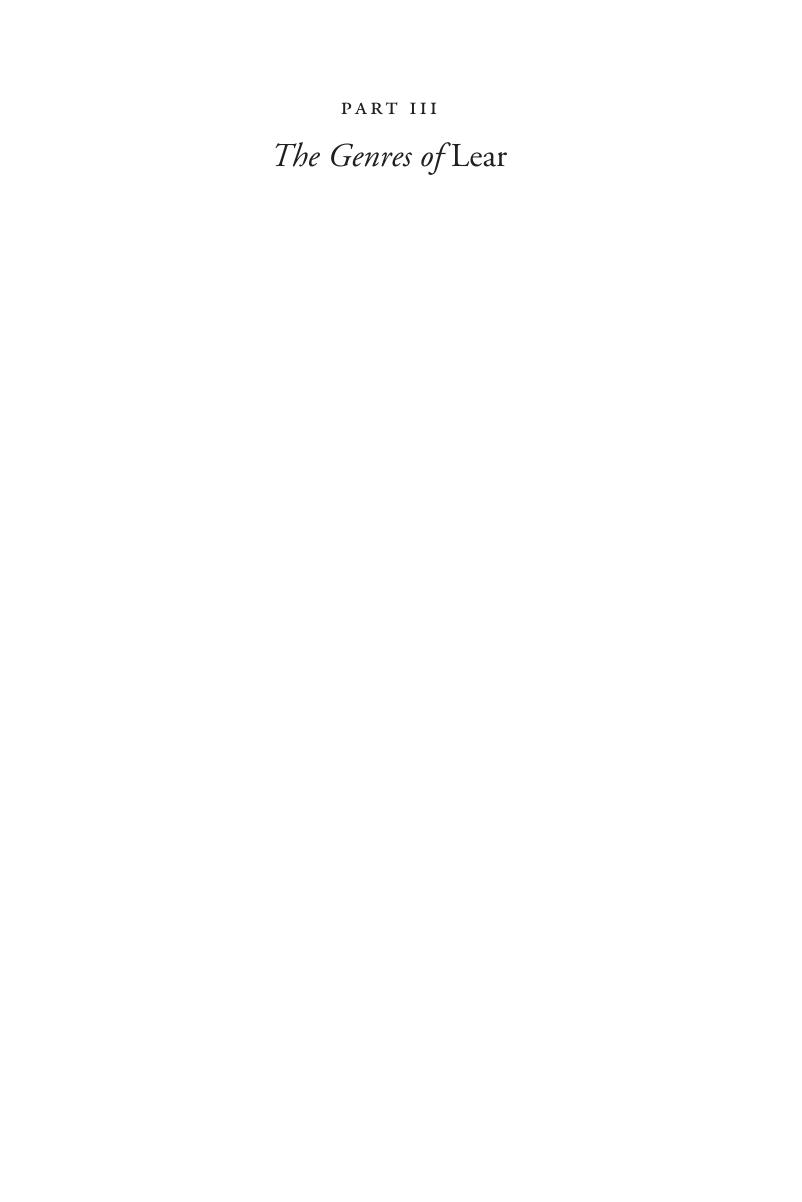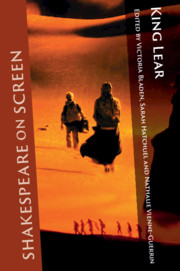Book contents
- Shakespeare on Screen: King Lear
- Series page
- Shakespeare on Screen: King Lear
- Copyright page
- Dedication
- Contents
- Illustrations
- Notes on Contributors
- Series Editors’ Preface
- Acknowledgements
- Chapter 1 Introduction: Dis-locating King Lear on Screen
- Part I Surviving Lear: Revisiting the Canon
- Part II Lear en Abyme: Metatheatre and the Screen
- Part III The Genres of Lear
- Part IV Lear on the Loose: Migrations and Appropriations of Lear
- Index
- References
Part III - The Genres of Lear
Published online by Cambridge University Press: 10 September 2019
- Shakespeare on Screen: King Lear
- Series page
- Shakespeare on Screen: King Lear
- Copyright page
- Dedication
- Contents
- Illustrations
- Notes on Contributors
- Series Editors’ Preface
- Acknowledgements
- Chapter 1 Introduction: Dis-locating King Lear on Screen
- Part I Surviving Lear: Revisiting the Canon
- Part II Lear en Abyme: Metatheatre and the Screen
- Part III The Genres of Lear
- Part IV Lear on the Loose: Migrations and Appropriations of Lear
- Index
- References
Summary

Keywords
Information
- Type
- Chapter
- Information
- Shakespeare on Screen: King Lear , pp. 109 - 154Publisher: Cambridge University PressPrint publication year: 2019
